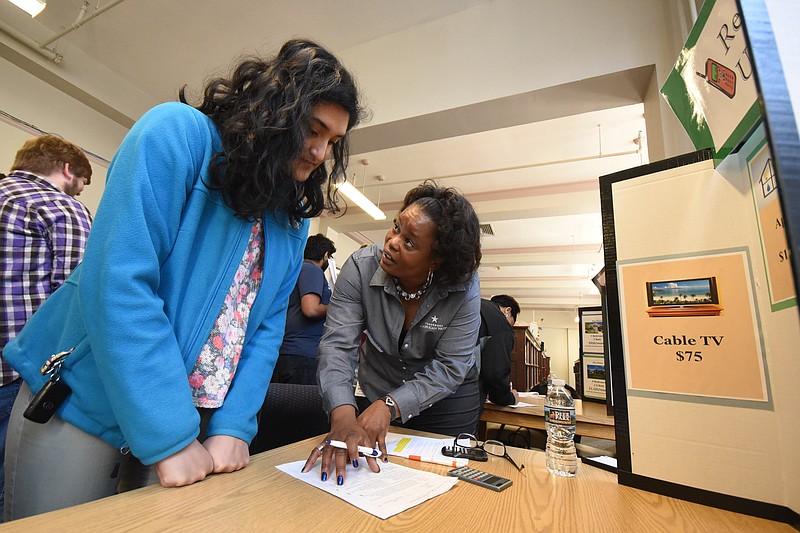If just one Chattanooga School for the Arts and Sciences student learned a financial management lesson Wednesday, the annual "Reality Check" role-playing exercise sponsored by the Chattanooga Area Chamber of Commerce was worth it.
Too often today, children leave school and home with little in the way of practical sense about how to handle money, what "real life" costs, and how to budget or save for what they need or want.
On one end, they may have been given everything they've wanted, lived in a bubble of comfort and don't have to worry about the cost of higher education. On the other end, they may have had so little they have no experience in dealing with what things cost, what to do if you had a little money and the necessity of putting needs like an education ahead of wants like a nice car.
The Chattanooga Chamber has offered "Reality Check," a 40-minute workshop in which students are given a simulated life situation and must make decisions in order to thrive in Realville, to Hamilton County schools since 2003.
"The activity increases their awareness of the connection between education, income and careers," Cathy Humble, education and public strategies coordinator for the Chattanooga Chamber, told Times Free Press reporter Meghan Mangrum.
The exercise gives them, for instance, a working knowledge of the cost of utilities, budgeting, and the expense and benefits of education.
They'll need all the help they can get. Across the country, students ages 15-18 only score around 60 percent on a National Financial Educators Council financial literacy test prepared for 15- to 18-year-olds.
That test suggests students should know, among other things, about banking (including knowing where your money goes), about credit (including the importance of building credit and avoiding credit card debt), about working (including the fact people take home less than they expect), about retiring and investing (including the fact it's never too early to open a retirement account), about student loans and debts (including the importance of paying your student loan sooner than you have to), and about spending (including the fact student loans and credit card debts stand for real money and not just figures on paper).
Tennessee, fortunately, is one of 23 states that require personal financial education for graduation, but it's up to each student to take the importance of that education to heart.
So, if through this exercise Sophie learns driving Grandma's 2003 Buick Regal may not be cool but it's better than a car payment, or Jacob understands that getting a bachelor's degree will bring in a lot more green than a high school diploma, the Chattanooga Chamber will have contributed to that needed financial education.
